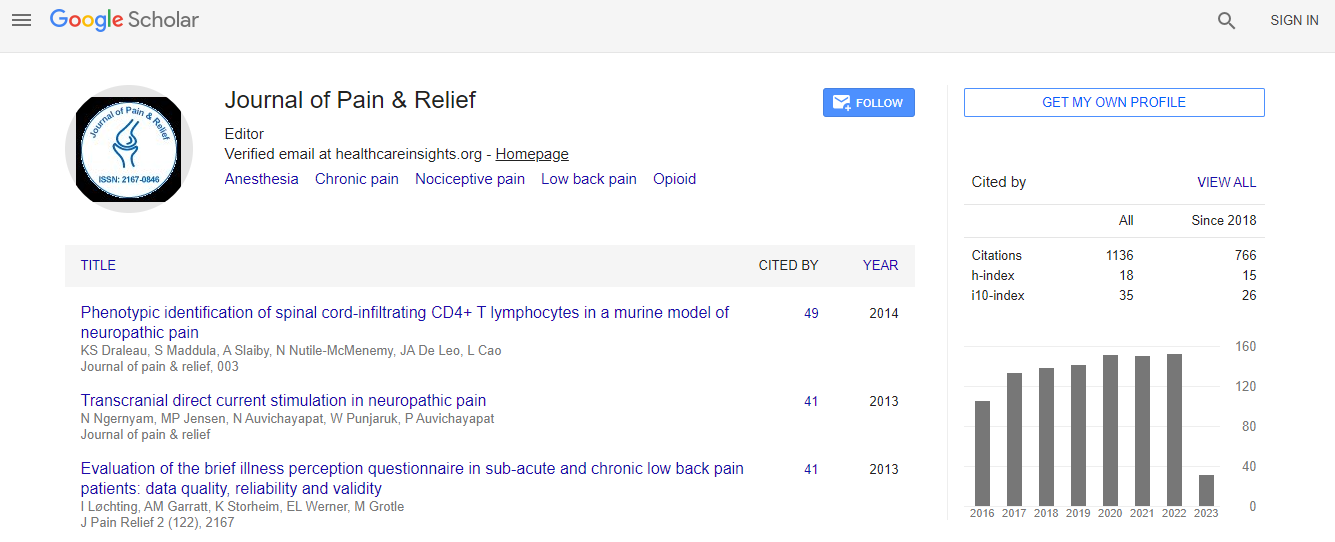Our Group organises 3000+ Global Events every year across USA, Europe & Asia with support from 1000 more scientific Societies and Publishes 700+ 51ºÚÁϳԹÏÍø Journals which contains over 50000 eminent personalities, reputed scientists as editorial board members.
51ºÚÁϳԹÏÍø Journals gaining more Readers and Citations
700 Journals and 15,000,000 Readers Each Journal is getting 25,000+ Readers
Citations : 1583
Indexed In
- Index Copernicus
- Google Scholar
- Open J Gate
- Genamics JournalSeek
- Cosmos IF
- RefSeek
- Hamdard University
- EBSCO A-Z
- OCLC- WorldCat
- Publons
- Geneva Foundation for Medical Education and Research
- Euro Pub
- ICMJE
Useful Links
Recommended Journals
Related Subjects
Share This Page
Intraincisional vs intraperitoneal infiltration of local anaesthetic for controlling early postlaparoscopic cholecystectomy pain
International Conference and Exhibition on Pain Medicine
Gouda Ellabban
Posters-Accepted Abstracts: J Pain Relief
DOI:

